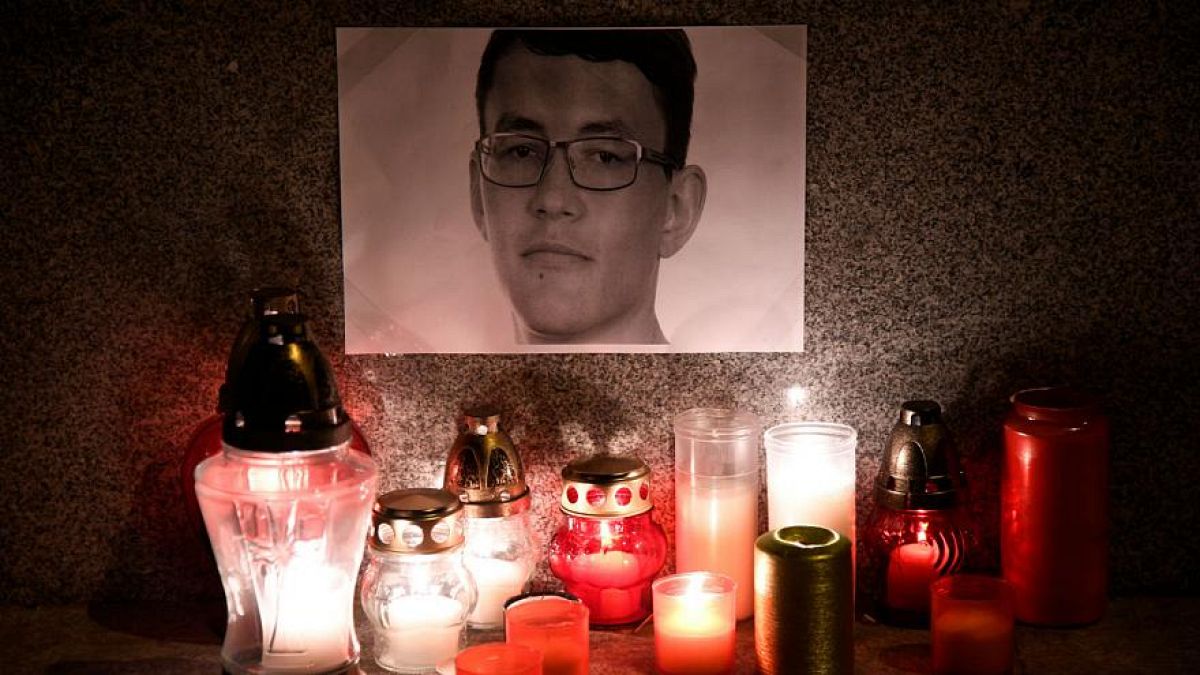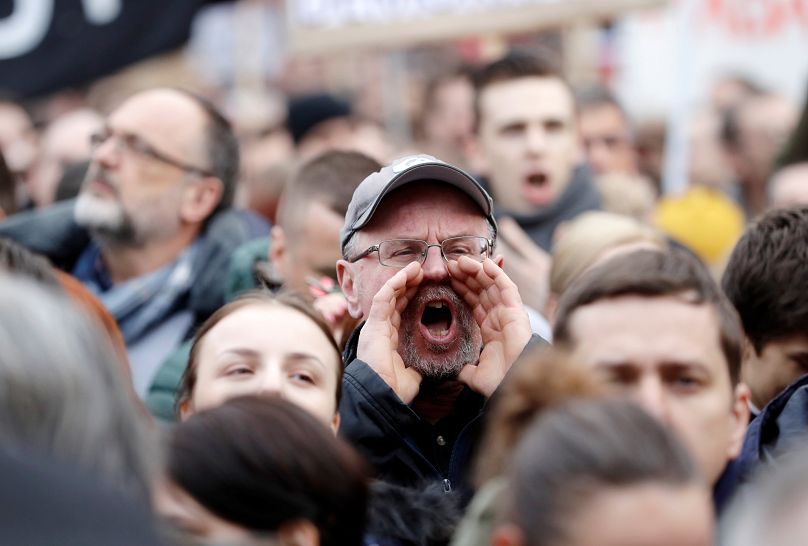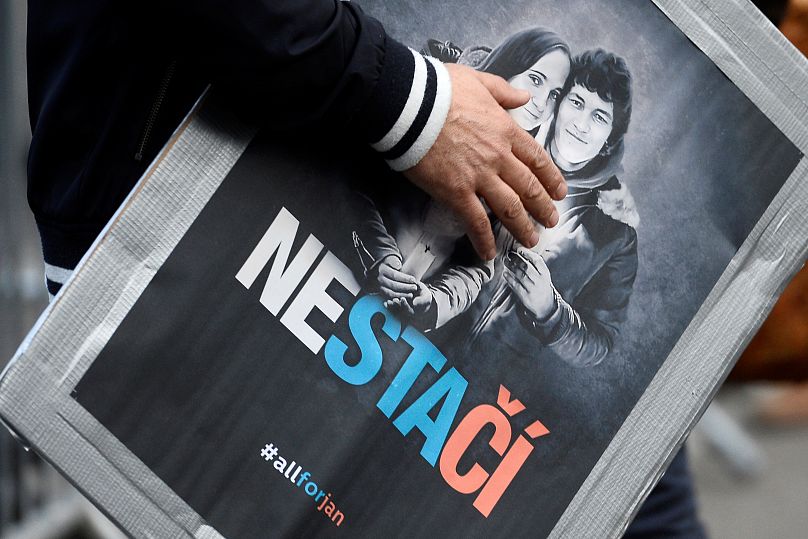The murder sent shockwaves through Slovakia and sparked the biggest street protests since the Velvet Revolution in 1989.
What happened?
Investigative journalist Jan Kuciak and his fiancée, Martina Kušnírová, were shot dead at their home near Slovakia’s capital Bratislava on February 21, 2018 - a year ago today.
Kuciak, 27, had been reporting on corruption, tax fraud and links between high-ranking Slovak politicians and the Italian mafia.
The murder sent shockwaves through Slovakia and sparked the biggest street protests since the Velvet Revolution in 1989.
Why such a strong reaction?
Experts say the final straw for many Slovaks was the fact that Kuciak had been investigating political corruption.
The protests helped pile pressure on the government. Three weeks after the killing, Prime Minister Robert Fico and his cabinet resigned.
“What had been constructed quietly under the ruling party was a system that served a tacit deal between oligarchs and the political class,” Milan Nic, a senior fellow at the German Council on Foreign Relations, told Euronews.
“The murder and protests meant the end of business as usual. They have started a push and a transformation away from this model. But the whole country is in limbo and this is a transitory period.”
Have the killers been found?
In September last year police charged four suspects in relation to the murder and a trial will be held later this year.
Reporters Without Borders (RSF) said one of them, a woman named Alena Zs, worked for a Slovak businessman who placed Kuciak under investigation because he was taking too much interest in his affairs.
“As well as being very close to the businessman, Alena Zs had also been introduced to high-ranking Slovak officials and politicians,” added the NGO.
What did the protests achieve?
They helped bring down the prime minister and cabinet. But Fico’s decision to quit avoided a snap election and his Smer party managed to cling onto power by installing Peter Pellegrini as his replacement.
Nic said that a year after Kuciak’s murder Smer is leading in the polls ahead of a series of elections in Slovakia over the next year.
“The murder of Jan Kuciak has changed the country and there will be repercussions on politics,” he added. “The sequencing is delayed because there were no elections [around the time of the killing].
“The coalition is hanging onto power without any agenda or programme, they play defence because if they go to elections now they would not be able to govern again.”
What happens next?
The impending trial of those accused of involvement in Kuciak’s killing is set to happen later this year.
It is likely to unveil more clarity around allegations of improper dealings between businessmen and the political elite.
“The country is on a good path but it’s early stages,” added Nic. “The police investigation has to be more independent and not controlled by the ministry of the interior, the prosecution has to do its job and allow the investigation of this murder to probe other leads and cases.”
How was it changed Slovakia?
Nic said state institutions were now under huge pressure from society over the extent of their alleged links to the ruling party.
“It has changed the country, I think quite profoundly,” added Nic. “Society has changed the most.
“This was a transformational event that mobilised, within a few days, more people to the streets to protest for a positive agenda than has been the case in my generation.
READ: Colleagues carry on where murdered journalist Jan Kuciak left off
“Everyone will remember this, it was a big unifying moment for half of the country. In this part of Europe, where what you see from the outside is apathy and losing of hope, and where, especially young people are leaving, all of a sudden you had anger that this had happened.
“The fact that he was investigating political corruption was what pushed many people to take a personal stance. This was a movement that united the country and protests took place around the globe where Slovaks were, from Vancouver to Vienna.”
How will the anniversary be marked?
The group, For a Decent Slovakia, says it will hold protests on Thursday (February 21) under the banner “We won’t forget! We will continue!”
Slovakia's government did not immediately respond to Euronews' requests to address some of the criticism in this article.




